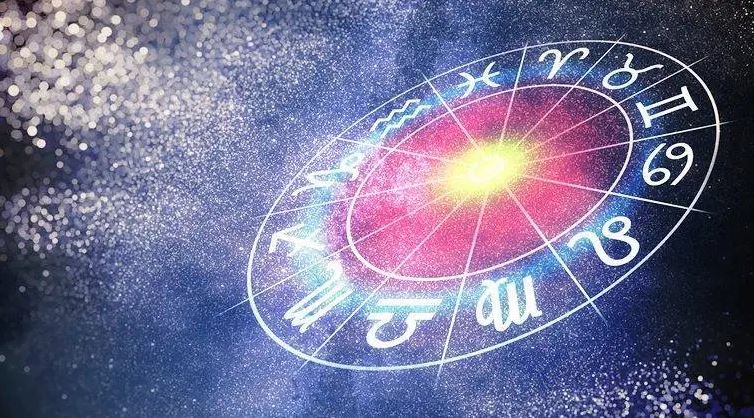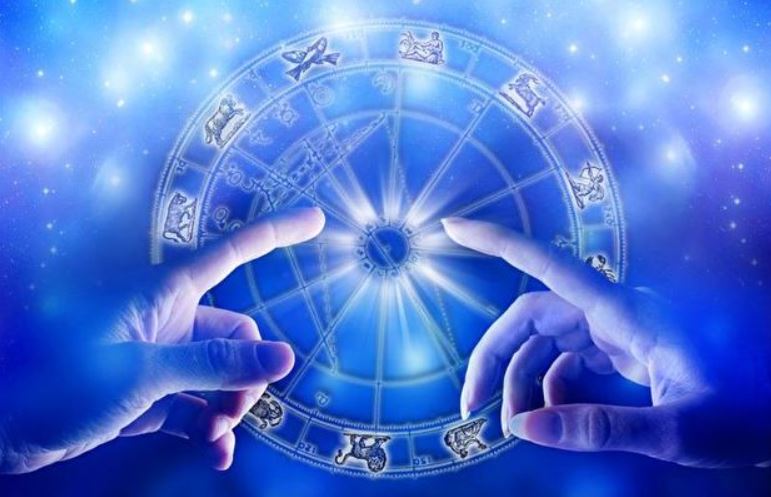”Look to the moon and stars to find the answers that lie within you.”
Exploring the Depths of Horoscope and Astrology

For centuries, humanity has gazed at the vast expanse of the night sky, pondering the mysteries hidden within the movements of celestial bodies. Horoscope and astrology have emerged as intertwined disciplines that seek to unravel these cosmic secrets.
In this article, we will embark on an exploration of the rich world of horoscopes and astrology, delving into their historical origins, fundamental principles, and contemporary significance.
A Brief History of Astrology
The roots of astrology can be traced back to ancient civilizations such as Mesopotamia, Egypt, India, and China. These early cultures observed the celestial bodies in the night sky and forged connections between their movements and earthly events.
Astrology evolved as a complex system, incorporating techniques like celestial observation, birth charts, and zodiac signs to interpret the influence of the stars on human life.
Understanding Horoscopes
At the heart of astrology lies the concept of the horoscope, which is a personalized astrological chart based on an individual’s birth date, time, and location.
This chart captures the positions of the celestial bodies at the moment of birth and serves as a blueprint for understanding one’s unique characteristics, strengths, weaknesses, and potential life experiences.
The horoscope is divided into twelve houses, each representing different aspects of life, including personality traits, relationships, career, and spirituality.
Exploring the Zodiac Signs
The Zodiac consists of twelve signs, each associated with specific dates and ruling planets.
- Aries (March 21 – April 19)
- Taurus (April 20 – May 20)
- Gemini (May 21 – June 20)
- Cancer (June 21 – July 22)
- Leo (July 23 – August 22)
- Virgo (August 23 – September 22)
- Libra (September 23 – October 22)
- Scorpio (October 23 – November 21)
- Sagittarius (November 22 – December 21)
- Capricorn (December 22 – January 19)
- Aquarius (January 20 – February 18)
- Pisces (February 19 – March 20)
Each sign possesses distinct characteristics that are believed to influence the personality traits and behaviors of individuals born under them. Astrologers analyze the placement of the Sun, Moon, and other planets within these signs to gain deeper insights into a person’s nature.
The Path to Wellness Through Nutritious Choices
Planetary Influences
Astrology views planets as symbolic representations of fundamental energies or archetypes that shape human experiences.
- The Sun symbolizes the core identity, vitality, and ego.
- The Moon represents emotions, instincts, and subconscious patterns.
- Mercury governs communication, intellect, and learning.
- Venus embodies love, beauty, and relationships.
- Mars signifies ambition, passion, and assertiveness.
- Jupiter embodies expansion, abundance, and wisdom.
- Saturn represents discipline, responsibility, and life lessons.
- Uranus symbolizes innovation, individuality, and sudden change.
- Neptune governs spirituality, intuition, and creativity.
- Pluto embodies transformation, power, and rebirth.
The placement of these planets in the birth chart provides further insight into an individual’s personality and life path.
Astrological Aspects
Astrological aspects refer to the geometric angles formed between celestial bodies within a birth chart.
Major aspects include conjunctions (when two planets align closely), oppositions (when planets are directly across from each other), trines (when planets form harmonious angles), squares (when planets form challenging angles), and sextiles (when planets form supportive angles).
These aspects reflect the dynamic interplay of planetary energies, revealing potential strengths, challenges, and opportunities in various life areas such as relationships, career, and personal growth.
Practical Applications of Astrology
While astrology attracts both believers and skeptics, many individuals find value in its practical applications. Astrology can serve as a tool for self-reflection, helping individuals gain a deeper understanding of their strengths, weaknesses, and life patterns.
It offers guidance in decision-making processes by illuminating potential opportunities and challenges.
Moreover, astrology provides insights into relationship dynamics and compatibility, aiding individuals in navigating their interactions with others.
Contemporary Astrology
In the digital age, astrology has gained renewed popularity, thanks to online platforms that provide easy access to horoscopes, birth chart calculators, and astrological readings.
Social media platforms have allowed astrology to reach wider audiences, fostering a vibrant online community of astrologers, enthusiasts, and seekers who share insights and interpretations.
The accessibility and relatability of astrology content on these platforms have contributed to its growing presence in mainstream culture.
Criticisms and Limitations
Astrology also faces criticism from skeptics who question its scientific validity. Critics argue that astrology lacks empirical evidence and relies on generalizations that could apply to anyone.
Furthermore, the precession of Earth’s axis has caused a shift in the alignment of constellations since the inception of astrology, leading to questions about the accuracy of zodiac signs. It is important to approach astrology with a balanced perspective, acknowledging its subjective nature and the limitations of its predictive capabilities.
Conclusion
Intriguing and captivating, horoscopes and astrology have fascinated humanity for centuries. While their historical origins can be traced back to ancient civilizations, these disciplines continue to evolve and thrive in the modern world.
Horoscopes provide personalized astrological charts that offer insights into various aspects of life, while zodiac signs and planetary influences shed light on individual traits and behaviors. Astrology finds practical applications in self-reflection, decision-making, and understanding relationship dynamics.
However, it also faces criticisms from skeptics who question its scientific validity. Whether one embraces astrology as a profound tool for self-discovery or views it as an entertaining pastime, there is no denying its enduring impact on human culture and curiosity.
As we gaze at the night sky, we are reminded of the vastness of the universe and our interconnectedness with celestial bodies. Horoscopes and astrology offer us a lens through which we can explore these cosmic connections and seek deeper meaning in our lives.
Ultimately, the decision to embrace or question astrology lies within each individual, but the wonder and fascination it evokes remain an eternal part of our collective human experience.










